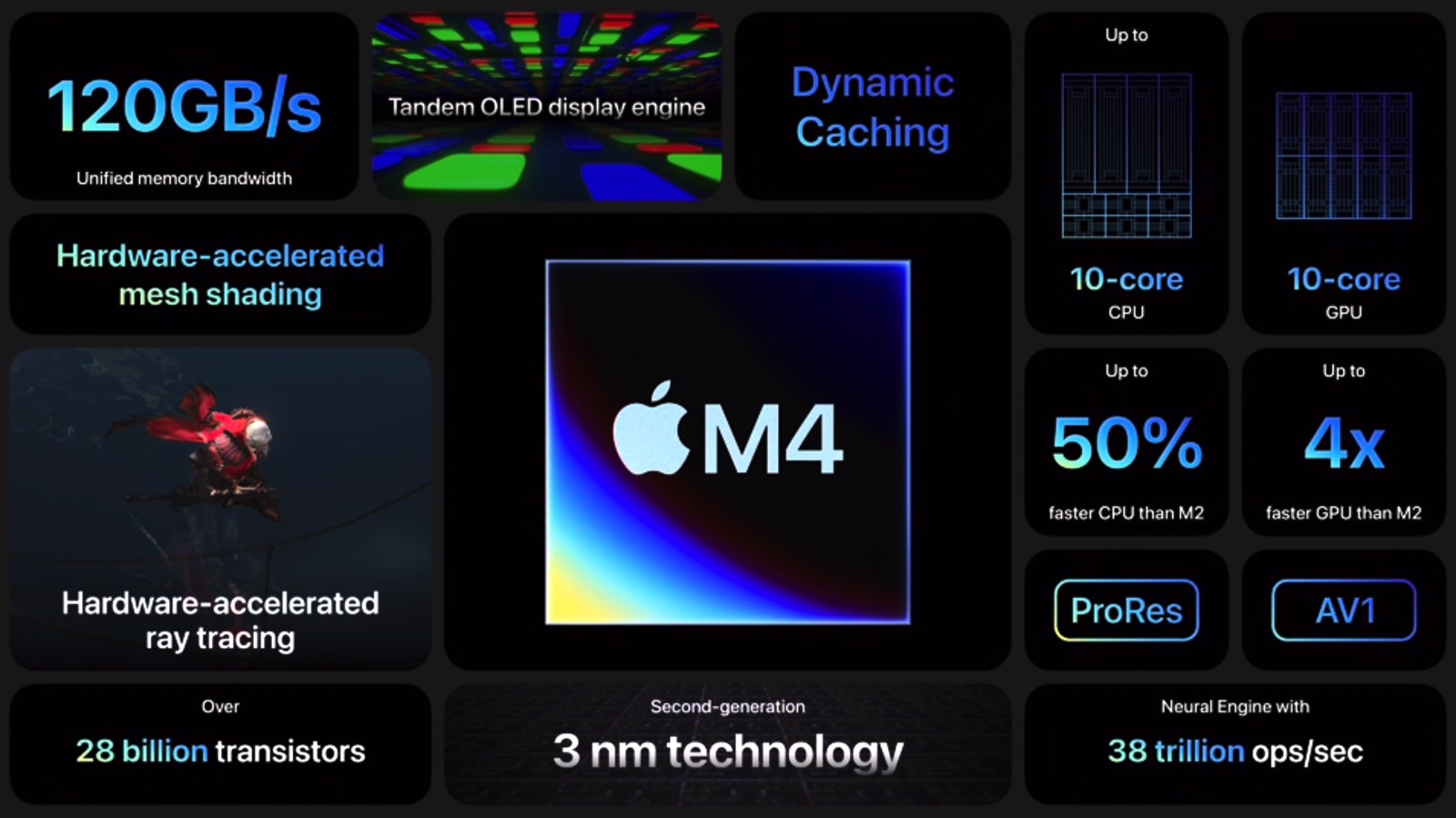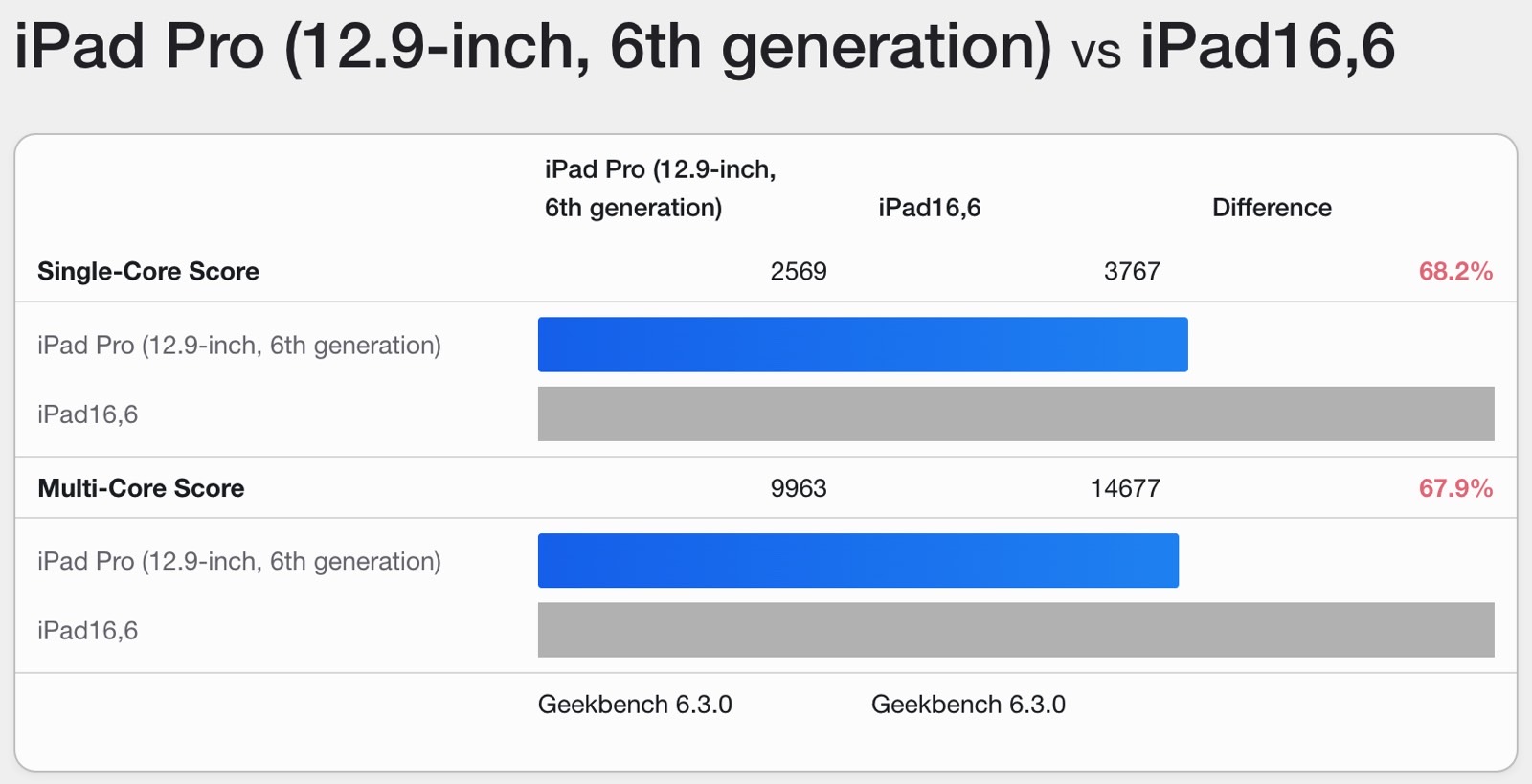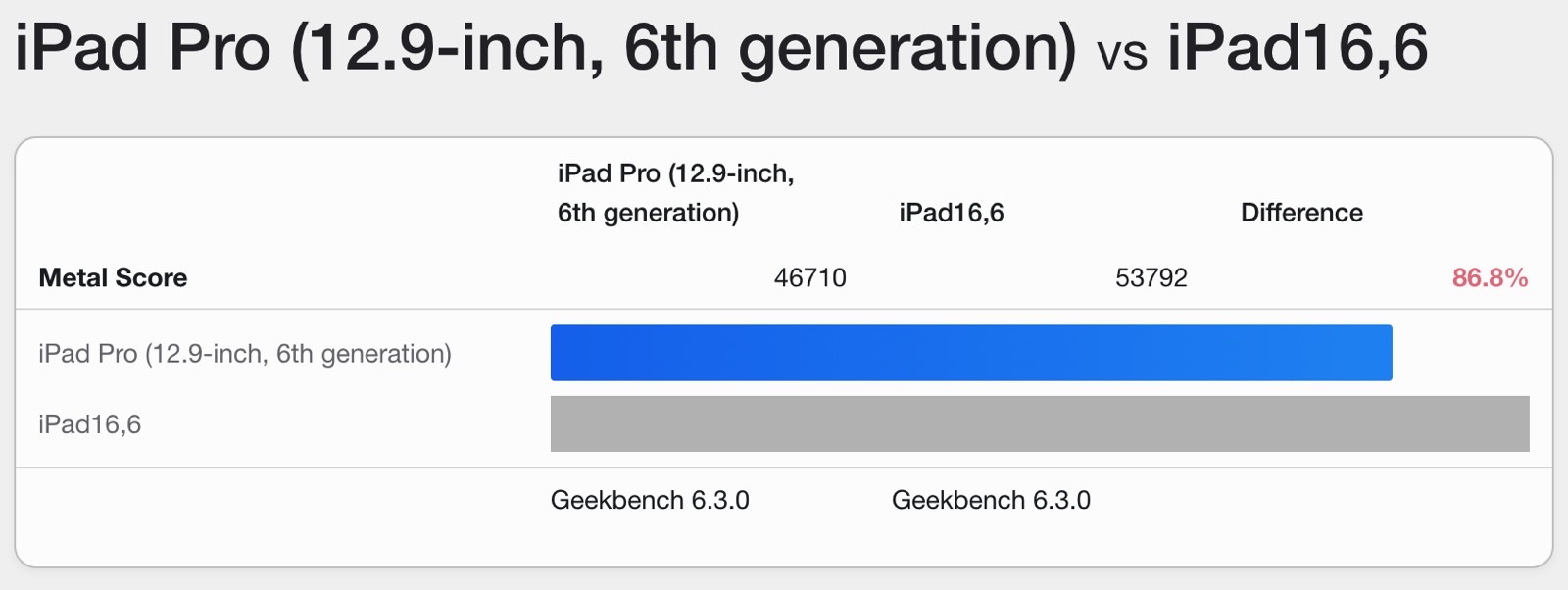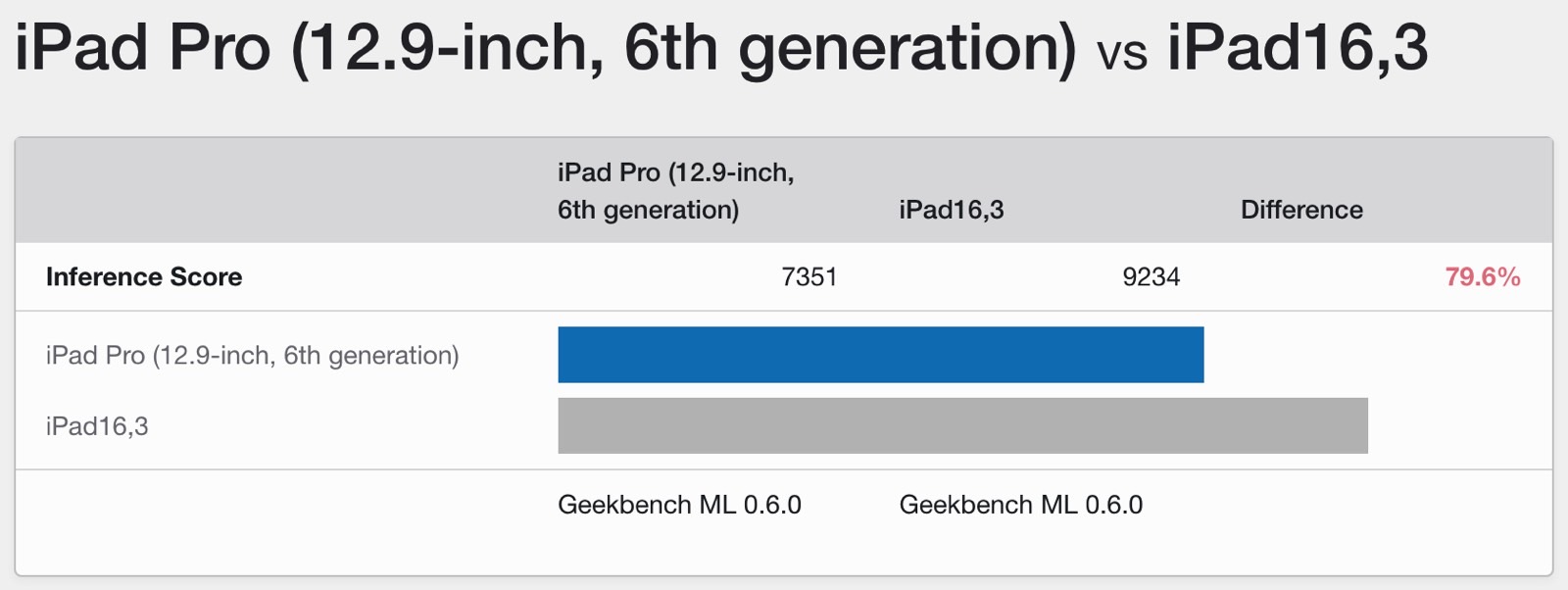Apple unveiled new iPad Pro and iPad Air models this week, confirming every rumor we saw in recent months. Even the wild, last-minute claim that the OLED iPad Pro will feature the M4 chip instead of the expected M3 came true.
The reason Apple went for the M4 this year probably has to do with artificial intelligence. Apple likely chose to futureproof its next-gen iPad Pro tablet as it prepares to launch generative AI features in iOS 18 and iPadOS 18. AI was one of the buzzwords of the Let Loose event when talking about the iPad Pro’s performance, though Apple stopped short of actually announcing new genAI features. That won’t happen until WWDC 2024 next month.
How fast is the M4 iPad Pro?
The M4 CPU is faster than the M2 when it comes to regular processing, not just AI. It features a better GPU that supports ray-tracing in games, like the A17 Pro chip powering the iPhone 15 Pro.
Apple provided some examples of what the extra power boost means:
M4 delivers up to 1.5x faster CPU performance over the powerful M2 in the previous iPad Pro.
That’s one reason to choose the M4 iPad Pro over the 2022 iPad Pro. Also, the iPad Air 6 now comes with the same M2 chip as the 2022 iPad Pros.

Apple also made a big deal about the efficiency gains of the M4. That can also be a good reason to pick the M4 chip over the M2 when buying an iPad:
With these improvements to the CPU and GPU, M4 maintains Apple silicon’s industry-leading performance per watt. M4 can deliver the same performance as M2 using just half the power. Compared with the latest PC chip in a thin and light laptop, the M4 can deliver the same performance using just a fourth of the power.
If you’re after top performance, you’ll want more proof that Apple’s claims are real. The first M4 iPad Pro benchmarks are out, showing that the M4 chip is indeed ready to offer the gains Apple touted.
Early benchmarks
An iPad16.6 running iOS 17.5 surfaced on Geekbench. Given the codename, it’s probably one of the four M4 iPad Pro models that Apple just launched. The same codename provided indirect proof that Apple would skip the M3 chip for the 2024 iPad Pros.

According to the benchmark, the M4 iPad Pro scores 3767 and 14677 in single-core and multi-core tests. A comparison to the 12.9-inch iPad Pro 6 shows that the new Pros are about 1.5 times faster than the previous model, just like Apple claimed. The iPad Pro 6, rocking an M2 chip, scores 2569 and 9963 in the same test.
These scores are important to keep in mind because the iPad Air 6 also features the same M2 chip. It’ll offer similar results in Geekbench 6 tests.

The GPU performance bump isn’t as big, but the M4 iPad Pro still outscores the M2 iPad Pro by quite a wide margin.
Finally, there’s a benchmark result for the 16-core Neural Engine in the M4 chip. This is a highlight of the new processor, which Apple insisted on during the event because it’ll play a crucial role in AI performance.

The M4 supposedly scored 9234 points in the test, while the M2 iPad Pro scored 7351 points. The issue with this benchmark is that it identifies the iPad Pro as running iPadOS 18 instead of an iPadOS 17.x version like the other benchmarks.
One more thing
Assuming these early M4 iPad Pro benchmarks are accurate, you’ll have your first answers. The 2024 iPad Pro will be faster than the previous Pro and the new iPad Air 6. If you think you’ll need all that performance, you’ll want to go for the new iPad Pro instead of the iPad Air 6.
I will also remind you that Apple uses two versions of the M4 chip. The 10-core version that appears in these benchmarks will be available only on the more expensive 1TB and 2TB iPad Pros. The 256GB and 512GB iPad Pros will get a 9-core M4 chip variant.
It’s worth reminding readers that benchmarks only tell a part of the story. The M4 iPad Pros are indeed faster, but we’ll need real-life testing to see exactly how fast they are compared to the M2 iPad Pro models. It’s very likely that you won’t be able to tell the difference most of the time.








